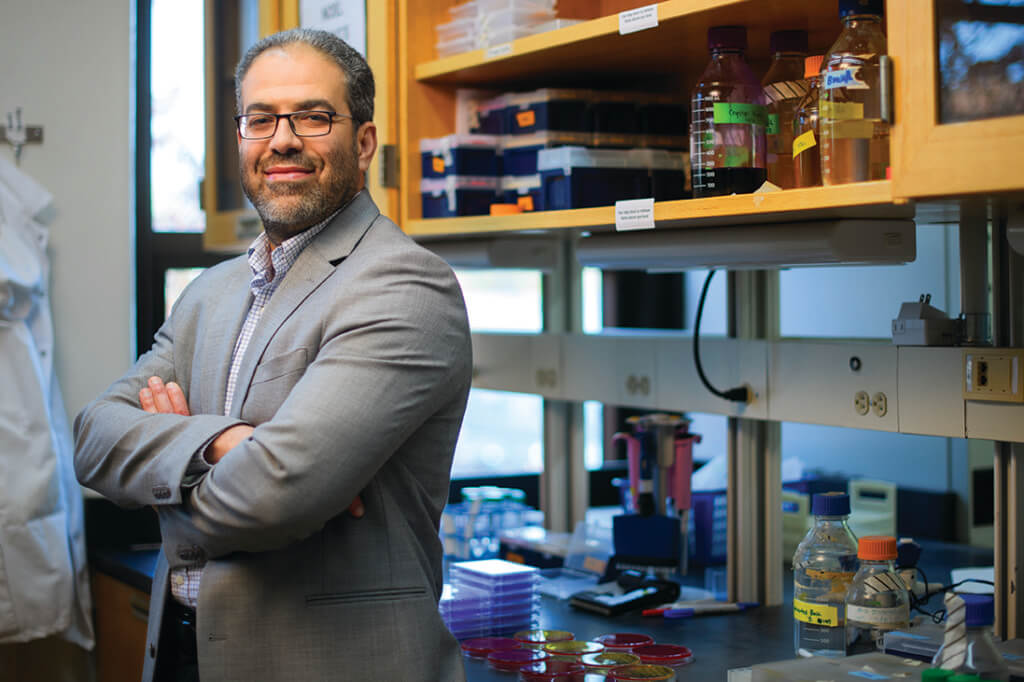
Dr. Mohamed Seleem, professor of microbiology in the Purdue Veterinary Medicine Department of Comparative Pathobiology, and his collaborator at Boston University have received a $1.7 million grant from the National Institutes of Health (NIH) for their research to develop a faster means of diagnosing often lethal bloodstream infections. Their approach also addresses the problem of antimicrobial resistance.
Bloodstream infections are notoriously deadly – not because they’re untreatable, but because they work fast and are hard to diagnose. To figure out what medication to give patients, doctors need to culture the bacteria or fungi causing the infection, which takes several days. In an attempt to treat the infection before results of the culture come back, doctors often give patients a drug cocktail, hoping that one of the medications in the bunch will cure the patient. Often, it doesn’t, and the practice contributes to the increasing prevalence of antimicrobial resistance.
Mortality rates are high, as bloodstream infections kill more than 600 people each day in the United States. Dr. Seleem is trying to change that with a faster method for diagnosing these infections. “We created a method that uses a blood sample from patients, and in 20 minutes identifies what kind of infection they have and what antibiotic or antifungal medication we should give them,” Dr. Seleem said. “Doing this without giving patients the wrong treatment or creating antimicrobial resistance is really novel.”
Antimicrobial resistance happens when a microorganism is able to stop a medication from working against it. As a result, standard treatments become ineffective, infections persist and continue to spread. Without effective antibiotics, major surgeries and chemotherapy become extremely high-risk.
Dr. Seleem’s new diagnostic tool images the infection and identifies it from the rest of the cells and bacteria in the blood. Once he finds the bacterium he’s looking for, he can go inside it and analyze it. The findings were published in the journal Analytical Chemistry. “Like each person has an individual fingerprint, each bacterium has a single fingerprint that’s specific to that infection,” Dr. Seleem said. “We created a library with the fingerprint of each infection, that way, we can quickly identify what kind of infection the patient has.”
The original study considered only a single bacterium. Now, Dr. Seleem wants to make the technique more efficient and verify that it works on the six most common bloodstream infections. With help from his collaborator, Dr. Ji-Xin Cheng, professor of biomedical engineering at Boston University, and the new NIH grant, he’s working toward these goals. “The mortality rate is very high because patients can die from this in a few hours,” Dr. Seleem said. “Finding a fast, efficient diagnostic tool is in high demand. We could save a lot of lives.”
Dr. Seleem’s research aligns with Purdue’s Giant Leaps celebration, which acknowledges the University’s global advancements in health, longevity and quality of life as part of Purdue’s 150th anniversary. This is one of the four themes of the yearlong celebration’s Ideas Festival, designed to showcase Purdue as an intellectual center solving real-world problems. Learn more about Dr. Seleem’s research.
The technology is patented through the Purdue Research Foundation Office of Technology Commercialization. Click here for more information about the technology.
